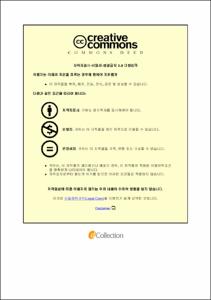면역관문억제요법을 받는 폐암환자의 지지적 간호요구도 영향요인
- Alternative Title
- Factors Influencing the Supportive Care Needs of Lung Cancer Patients Undergoing Immune Checkpoint Inhibitor Therapy
- Abstract
- 본 연구는 면역관문억제요법을 받는 폐암환자의 증상경험, 불안, 우울, 지지적 간호요구도를 확인하고, 지지적 간호요구도에 미치는 영향요인을 규명하고자 하였다. 면역관문억제요법을 받는 폐암환자를 대상으로 구조화된 설문지를 이용한 서술적 조사연구이다. 자료수집은 서울시 소재 A상급종합병원에 서 2023 년 3월 17 일부터 9월 18일까지 면역관문억제요법을 받는 폐암환자 132 명을 대상으로 자료를 분석하였다. 연구 도구는 증상경험은 M. D. Anderson Symptom Inventory Lung Cancer(MDASI-LC)를 이용하였고, 불안과 우울은 병원 불안-우울 척도(Hospital Anxiety-Depression Scale, HADS)를 사용하였으며, 지지적 간호요구도 측정도구로 Supportive Care Needs Survey 59를 이용하였다. 자료 분석은 SPSS 29.0 통계프로그램을 이용하여 분석하였다. 본 연구의 주요 결과는 다음과 같다.
1. 대상자의 증상경험 평균은 2.33±1.89 점(10 점 만점)이며, 하위영역 중 증상경험의 정도는 평균 2.63±2.01 점, 증상이 일상생활에 주는 방해정도는 평균 2.05±1.88 점이었다. 불안 점수는 평균 6.42±3.92 점(21 점 만점), 우울 점수는 평균 7.49±3.60 점(21점 만점)으로 나타났다.
2. 대상자의 지지적 간호요구도는 평균 45.68±16.03 점(10 점 만점)이며, 영역별로는 의료체계와 정보영역이 평균 54.47±20.60 점으로 가장 높게 나타났으며, 환자 간호 및 지지요구 영역 44.13±19.52 점, 심리적 요구 영역 43.10±18.39 점, 신체 및 일상생활 영역 42.90±18.28 점, 기타 요구 영역 40.61±16.89 점, 성적 요구 영역이 38.08±19.06 점 순으로 나타났다.
3. 일반적인 특성에 따른 지지적 간호요구도의 차이는 인지하는 소득 수준(F=3.263, p=.041)에 따라 차이가 나타났고, 사후분석결과 소득수준은 매우 어렵다고 응답한 대상자가 그 외의 대상자보다 높게 나타났다. 치료비 부담감(F=3.840, p=.024)에 따라 유의한 차이가 나타났고, 사후분석결과 차이가 없었다. 임상 특성에 따른 지지적 간호요구도의 차이는 ECOG 활동수준(F=16.147, p<.001)에 따라 차이가 나타났고, 사후분석결과 ECOG 활동수준 0등급이 1,2등급보다 유의하게 낮았고, 1,2 등급이 3등급이상보다 유의하게 낮았다.
4. 대상자의 지지적 간호요구도는 증상경험(r=.666, p<.001), 불안(r=.648, p<.001), 우울(r=.564,p<.001)과 유의한 정적 상관관계가 나타났다. 증상경험은 불안(r=.531, p<.001), 우울(r=.527,p<.001)과 유의한 정적 상관관계가 나타났다.
5. 대상자의 지지적 간호요구도에 영향을 미치는 요인을 파악하기 위해 회귀분석을 실시한 결과 증상이 일상생활에 주는 방해 정도와 불안이 지지적 간호요구도에 영향을 미치는 요인으로 나타났으며 설명력은 57.2% 였다. 본 연구를 통하여 면역관문억제요법을 받는 폐암환자의 지지적 간호요구도의 영향요인으로 증상이 일상생활에 주는 방해정도와 불안이 확인되었다. 따라서 면역관문억제요법을 받는 폐암환자의 증상경험과 불안의 정도를 조기에 사정하여 환자 개인의 간호요구도에 적합한 간호 중재를 제공해야할 것이다.
주요어: Immune checkpoint Inhibitors, Symptom Burden, Anxiety, Needs Assessment|Abstract
Objective: This descriptive study aimed to assess the symptom experiences,anxiety, depression, and supportive care needs of lung cancer patients undergoing immune checkpoint inhibitor therapy. Additionally, the study sought to identify factors influencing the impact of symptom experiences,Anxiety, and depression on supportive care needs in these patients.
Methods: A structured questionnaire was administered to lung cancer patients undergoing immune checkpoint inhibitor therapy for data collection. The study included 132 patients treated at A Hospital in Seoul from March 17, 2023, to September 18, 2023. Data were analyzed using SPSS 29.0. Symptom experiences were measured using the M. D. Anderson Symptom Inventory Lung Cancer (MDASI-LC), anxiety and depression were assessed using the Hospital Anxiety-Depression Scale (HADS), and supportive care needs were measured
using the Supportive Care Needs Survey 59.
Results: The key findings of the study are as follows:
1. The average score for symptom experiences was 2.33±1.89, with subcategories indicating an average severity of 2.63±2.01 for symptom
experiences and 2.05±1.88 for the interference of symptoms with daily life. The average anxiety and depression scores were 6.42 and 7.49,
respectively.
2. Supportive care needs were highest in the medical system and information domain, with a score of 54.47±20.60. Other domains included patient care and support needs (44.13±19.52), psychological needs (43.10±18.39), physical and daily life needs (42.90±18.28), other needs (40.61±16.89), and sexual needs (38.08±19.06).
3. Characteristics showing differences in supportive care needs included income level (F=3.263, p=.041), where those reporting income as very difficult had higher needs than others. Significant differences were also observed in financial burden (F=3.840, p=.024), but post hoc analysis revealed no significant differences. ECOG PS (F=16.147, p<.001) showed differences, with ECOG PS 0 being significantly lower than grades 1 and 2, and grades 1 and 2 being significantly lower than grade 3 or higher.
4. Significant positive correlations were found between supportive care needs and symptom experiences (r=.666, p<.001), anxiety (r=.648, p<.001), and depression (r=.564, p<.001). Symptom experiences also had significant positive correlations with anxiety (r=.531, p<.001) and depression (r=.527,p<.001).
5. Regression analysis revealed that the interference of symptoms and anxiety were significant factors influencing supportive care needs, with an explanatory power of 57.2%.
Conclusion: Higher levels of symptom interference and anxiety in lung cancer patients receiving immune checkpoint inhibitor therapy are associated with increased supportive care needs. Therefore, early prevention and appropriate interventions for symptom experiences and anxiety should be implemented to provide effective supportive care interventions.
Keywords: Immune checkpoint Inhibitors, Symptom Burden, Anxiety, Needs Assessment.
- Issued Date
- 2024
- Awarded Date
- 2024-02
- Type
- Dissertation
- Alternative Author(s)
- Jung Min Hwa
- Affiliation
- 울산대학교
- Department
- 산업대학원 임상전문간호학전공
- Advisor
- 김정혜
- Degree
- Master
- Publisher
- 울산대학교 산업대학원 임상전문간호학전공
- Language
- kor
- Rights
- 울산대학교 논문은 저작권에 의해 보호받습니다.
- Appears in Collections:
- Industry > Professional Clinical Nursing
- 파일 목록
-
-
Download
 200000735744.pdf
기타 데이터 / 4.84 MB / Adobe PDF
200000735744.pdf
기타 데이터 / 4.84 MB / Adobe PDF
-
Items in Repository are protected by copyright, with all rights reserved, unless otherwise indicated.